Why the relocation of street dogs is counterproductive, cruel
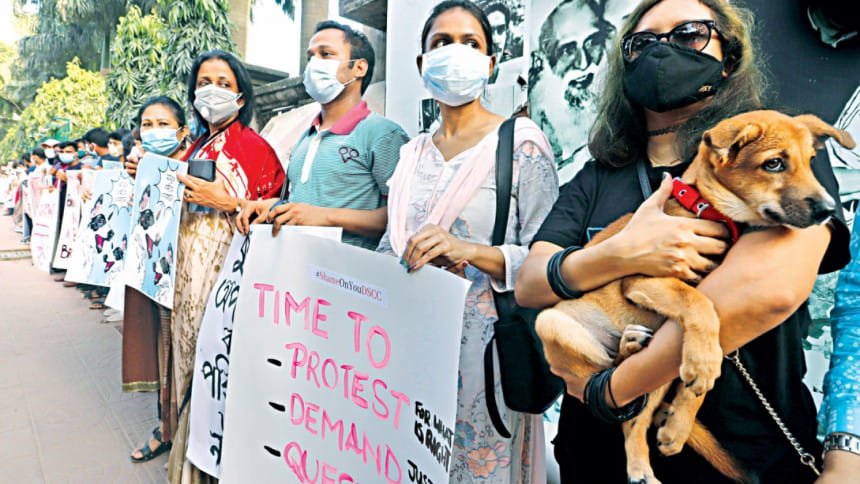
On August 12, 2020, the Dhaka South City Corporation Mayor Barrister Sheikh Fazle Noor Taposh declared that he will remove some 30,000 dogs from Dhaka city. There have been massive protests in response to his statement from both local and international communities.
It is crucial to look at this decision from an informed lens and so, below I have detailed the flaws in this idea and why it should matter to everyone, dog lover or not.
Why is culling/displacing dogs ineffective and counter-productive?
Dogs move in packs. Indiscriminate culling only encourages the remaining dogs to come together to form new packs and breed more aggressively. The vacuum created by culling is only temporary and the population actually ends up growing more in the long run. They are extremely territorial. When dogs are removed, others from surrounding area will try to occupy the newly vacant territory. This will encourage dog fights over territory and food and cause further public nuisance.
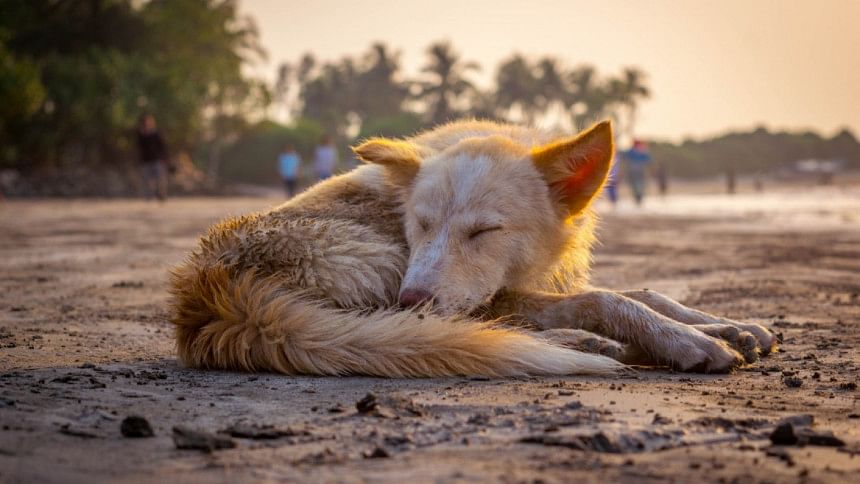
Vaccinated dogs work as a barrier to rabies transmission. About 80% of the city's dogs have recently been vaccinated by DGHS. Removing these dogs will pose a risk to public health. Moving dogs from their locality is as good as killing them. It is extremely inhumane. Moreover, it is also going to cause a lot of distress amongst the human and dog population of the area where the dogs will be relocated.
What's a more humane and effective alternative to culling/displacing dogs?
World Health Organization (WHO) deems dog culling inhumane and ineffective in controlling either rabies or dog population. A coordinated city-wide mass dog vaccination and sterilisation programme, coupled with mass awareness programme, is the only effective way to address this issue. Many countries and cities have adapted this programme and have seen great results. In India's Jaipur city, the number of deaths was brought from 300 to zero in a span of 5 years.
Dhaka city has around 40,000 free roaming dogs (original survey conducted in 2016 by Humane Society International and updated every year). This is a very small dog population compared to many other cities in our neighboring countries. Since 2012, Obhoyaronno has vaccinated and sterilised over 18,000 dogs and work continues in north Dhaka in collaboration with DNCC. Our clinic is currently located inside the Mohakhali DNCC market.
The benefits of humane dog population management include the following:
Rabies will be eliminated from Dhaka City as a result of systematic mass vaccination of the dog population and sustained vaccination coverage through increased responsible ownership of dogs.
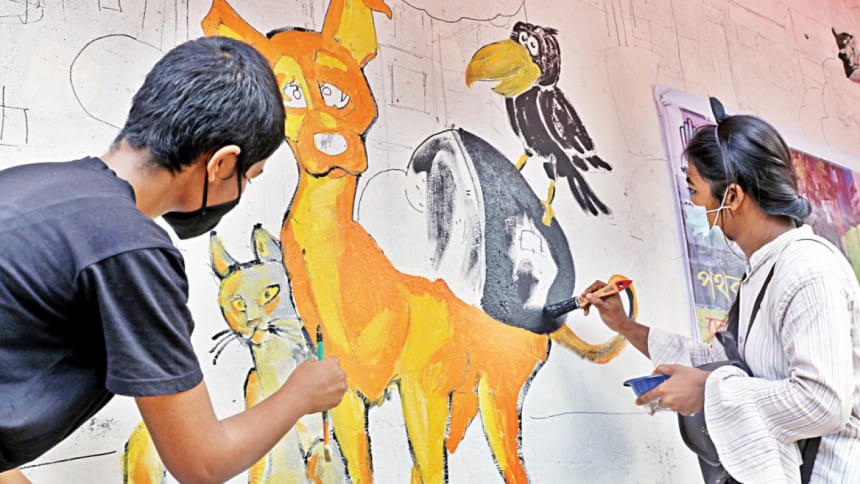
There will be a significant reduction in dog bites, bringing down government cost of human rabies vaccine, as risky behaviours (such as maternal aggression) are reduced through sterilisation, and owners take full responsibility for their dogs' behaviour.
The dog population will be smaller and there will be very few unowned dogs, as a result of intensive, systematic population control, raised public awareness of the benefits of keeping dogs and a massive increase in capacity for ownership.
There will be far fewer complaints to the government regarding nuisance of dogs, as a result of population control, careful management (including rapid incident response) and a reduction in nuisance behaviours such as barking.
Dogs in Dhaka will enjoy good welfare, as more people understand dogs' needs and are able to provide appropriate care, and cruelty is reduced through education.
There will be humane, effective dog population management throughout Bangladesh, including improved small animal veterinary capacity, and a respected animal control officer profession, as a result of promotion of the Dhaka model and accredited training schemes.
Dog culling/relocation defies the country's rabies prevention strategy
Bangladesh has a history of killing community dogs indiscriminately for the last 50 years in an attempt to eradicate rabies and reduce dog population.
Obhoyaronno was set up in 2009 to advocate for an effective and humane dog population management and rabies prevention program. Due to Obhoyaronno's persistent advocacy, Dhaka city was declared a no-kill city in 2012 and thus commenced the country's first dog vaccination and sterilisation programme. Obhoyaronno has processed almost half the dog population of Dhaka city. The entire funding for this programme, which comes to around Tk 4 crore, was mobilised by Obhoyaronno and there was no govt funding for this.
In 2010, the DGHS revised their age-old rabies prevention programme and put together a national rabies prevention strategy under the leadership of the then DGHS director general Prof Shah Monir Hossain. Under this new strategy, the GoB was to adapt the WHO recommended mass dog vaccination and sterilisation programme to eradicate rabies by 2020. (https://www.who.int/features/2014/bangladesh-tackles-rabies/en/)
As per the new rabies prevention strategy, DGHS carried out two rounds of nationwide mass dog vaccination program in 2014, and again in 2019.
How do we know if the programme is working?
Drop in cases of human rabies: according to WHO, the incidents of human Rabies have dropped by 50% in the country following the mass dog vaccination programme.
Less puppies on the street: this is only evident in Dhaka city as no other city has adapted a sterilisation programme. However, this programme does not render a community dog free. What it does is ensure a rabies free, healthy dog population in the short term, and a reduction of an overall dog population in the long run.
Culling and relocation defy the Animal Welfare Act of Bangladesh, 2019
The 2019 animal welfare act forbids both culling and relocation of free roaming dogs. The 2014 writ petition filed by Obhoyaronno also placed an injunction order against dog culling and animal sports. The 2009 law of city corporation allows city corporation to remove and/or destroy "dangerous" animals, but this does not apply because the city corporation never had a clear policy on this, the DGHS's vaccination campaign renders the community dogs 'safe' and the 2019 animal welfare act supersedes the 2009 city corporation act.
It threatens the ecological balance
Dogs are extremely important for our ecological balance. Free roaming dogs eat thousands of tons of garbage on a daily basis. Removing them will allow the rat population to flourish, which can have a devastating impact on the environment.
It's inhumane
Millions of years ago, we domesticated dogs for our own benefits. The friendship of man and dog have been firm since then. There are scores of dog lovers in Dhaka city and overall Bangladesh from all kinds of backgrounds and upbringing. We know of street kids and beggars who share the one meal they have with their community dogs. We know of students who save their allowance to vaccinate and sterilise their dogs. We know of slum kids whose only friends are the dogs.
What kind of a society will we create where the authorities do not value the love and compassion people show to other sentient beings? DSCC mayor's statement defies the country's rabies prevention policy, it defies the country's law, and it undermines the sentiment and efforts of hundreds of thousands of people in this city who care for their community dogs.
Current challenges
There is no coordination amongst the relevant ministries. If DGHS vaccinates dogs, and city corporation culls or removes them, it's a waste of public resources. The issue of rabies and dog population management needs to be dealt with multi-stakeholder approach with involvement of health ministry, local government bodies, livestock department, UN bodies (WHO and FAO) and other local and international animal welfare organisations.
There has been no effort to allocate budget or to build capacity to sterilise dogs to curb their population. To this date, Obhoyaronno is the only organisation that has developed any expertise and experience in mass scale sterilisation programme. Without involvement and support of the government, it will not be feasible for Obhoyaronno to carry out this work for much longer.
There is no awareness on or plan for the implementation of the new Animal Welfare Act 2019.
Rubaiya Ahmad is the founder and chairman of Obhoyaronno - Bangladesh Animal Welfare Foundation.

 For all latest news, follow The Daily Star's Google News channel.
For all latest news, follow The Daily Star's Google News channel. 

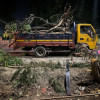
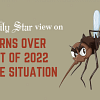




Comments